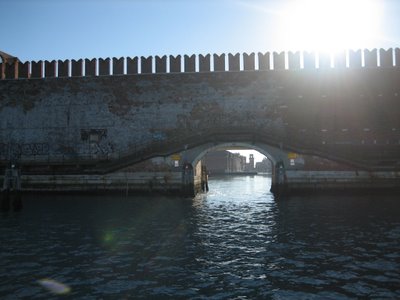A guest post by Alastair Roberts
The convictions that we have about the form of the truth are undoubtedly among the most important that we have. They shape our notions of the sort of thing that we are looking for when we are looking for truth and our ideas of how we ought to go about it. One of my fundamental convictions about truth is that it takes the character of a conversation. Truth can never be reduced to a single perspective, or even be borne by a single voice.
Studying the New Testament played a crucial role in leading me to this conviction. Many people read the epistles of the Apostle Paul as if he were delivering lots of monologues on the doctrine of salvation, and fail to situate his voice within the context of particular conversations. The frequent attempts to recast the thought of Paul in a monological form, or to abstract Paul’s theological pronouncements from contingent dialogical contexts, can produce all sorts of difficulties when we seek to establish the consistency of his thought. In a similar manner, the relationship between the gospels is a lot easier to understand when we think of truth as a conversation. Taking such an approach we won’t seek to reduce the gospels to a single narrative, nor will we constantly play their differences off against each other. We also won’t leave them sealed off or isolated from each other.
If truth is a conversation, the way that that we should look for it is through dialogue. The truth is profoundly and inescapably multifaceted, involving various counterbalancing perspectives. Rather than seeking the complete annihilation of our conversation partner’s perspective, our goal should generally be the purifying and deepening of conversation. In pursuing such a goal confrontational and agonistic forms of dialogue can be profoundly important. If truthful and illuminating conversation is our goal then in all likelihood we will also frequently find that we are arguing positions that seem quite at odds with each other at first glance, arguing both sides of particular debates.
Given that I hold such an understanding of truth, it should come as no surprise that the character of productive discourse and its facilitation in various situations are matters of considerable interest and concern to me. Despite frequently failing in the area, encouraging healthy and fruitful conversations, with plenty of give and take, is something that I seek to aim for. I often wonder about the various reasons why certain conversations end in acrimony, fail to proceed beyond certain impasses, fail to produce any light, or isolate certain persons who could provide important or challenging contributions.
Sadly, so many of the discussions and conversations that I witness seem to be thwarted by prejudices, rushes to judgment, stereotypes, seeing imaginary threats when reading between the lines, heightened sensitivities, feelings of offence and other similar things. There are certain conversations that I hardly ever engage in any more as a result. I have often puzzled and pondered over whether there are key common causes for such breakdowns of conversation, something which I am witnessing in a huge range of social interactions. The impression that I have arrived at is that the underlying issue in numerous cases is a sort of paranoia, arising out of people’s sense of being vulnerable, out of control or persecuted.
Virtually everyone seems to think of themselves as a sort of victim nowadays. The liberal rhetoric of victimhood has been adopted by numerous groups and minorities. Even among those where such rhetoric isn’t widespread, a sense of persecution is not hard to find. Atheists, Christians, men, women, gay, straight, left wing, right wing, libertarian, authoritarian, rich, poor, people from virtually every racial or ethnic background, we all seem to have discovered ways to portray ourselves as being under threat and allow such portrayals powerfully to shape our engagements with others and our sense of self.
If you feel out of control, criticisms start to feel like personal threats or attacks (something that is a huge issue when dialoguing with people in the realm of identity politics). People who feel vulnerable and feel that they lack direct power also start to give meaning to every little thing. The term for this is paranoia. Every action or engagement with the paranoid person can become an occasion for a conversation with themselves, trying to deduce the meaning of insignificant acts. This is one reason why conspiracy theories flourish among the weak.
Academia is no longer the preserve of a privileged white male elite and increasingly the most important conversations that we need to have are with members of vulnerable minorities, or of groups who have been denied power or voice within society. The problem that we face is that of crafting productive and critical discourses in circumstances where many of the people that we most need to talk to are suffering to some degree or other from paranoia. On the one hand, these people have many things to say that we need to hear. On the other hand, there are often many areas of their perception of reality that derive more from paranoia than from a clear sense of the way that things actually are. These things need to be challenged, without provoking a sense that they are being personally attacked.

The traditional agonistic and confrontational style of discourse works well in an academy dominated by privileged white males. A traditional model of masculinity involved the raising of men in a competitive setting, where they were trained to get over their sense of vulnerability, stand up for themselves and take what came at them, without taking things personally, or running to an authority figure. This prepared men very well for fruitful engagement in a fairly confrontational and challenging form of discourse. Put a more paranoid person in such a form of discourse, though, and the conversation swiftly explodes or closes down. I think that there are valuable aspects to such form of discourse that we don’t want to lose. I am uncertain about how we could go about producing a more inclusive form of discourse that would be as successful a setting for critical discourse.
I suspect that this dynamic lies behind many reactions to N.T. Wright’s thought. People raised on the idea that the gospel is always under threat and the church always under attack, but with little sense of the actual power of the truth and authority of the church can succumb to a theological and ecclesiastical paranoia. So the church becomes threatened by some vast liberal conspiracy, every marginal theological party within the denomination is an attempt to take it over, every different theology is an attack on the heart of the gospel, any questioning of a theological formulation is regarded as an attempt to overthrow the truth, critics are demonized, and everything becomes polarized very quickly. I have yet to find an easy way to defuse this besides patience and long-term friendship and fellowship.
This post isn’t an attempt to present an answer to this issue. Rather, it is a tentative attempt at a diagnosis of a problem. I would be interested to hear the thoughts that people have on the accuracy or otherwise of this thesis, and of ways in which conversation can be encouraged in such cases.
Alastair is a PhD student at Durham University working on the developing format of Bibles in 16th and 17th century England, and on the effect that they had on engagement with the text. He used to blog prolifically at Adversaria and over the years, more than a few of his posts caught my eye.





















